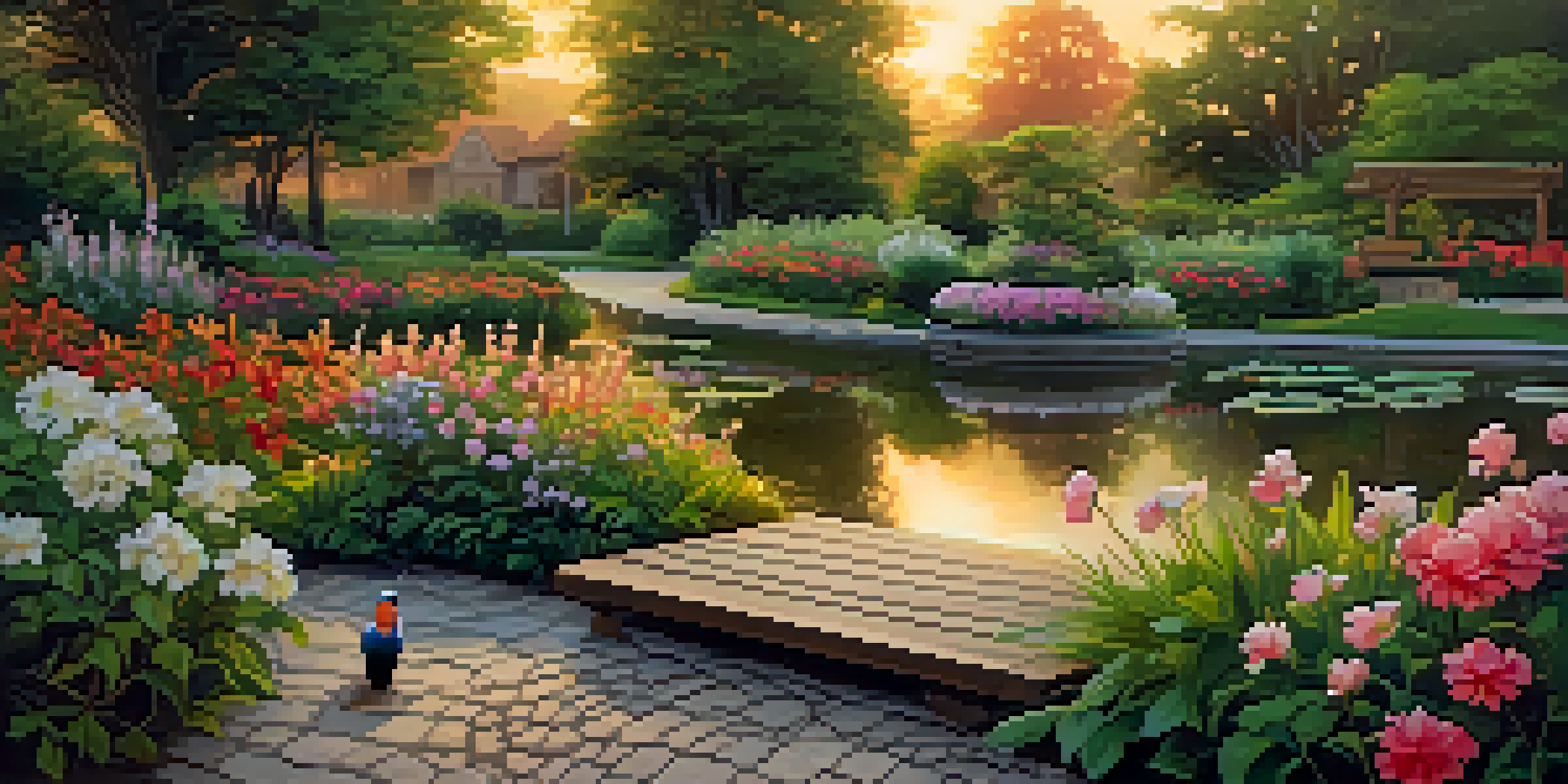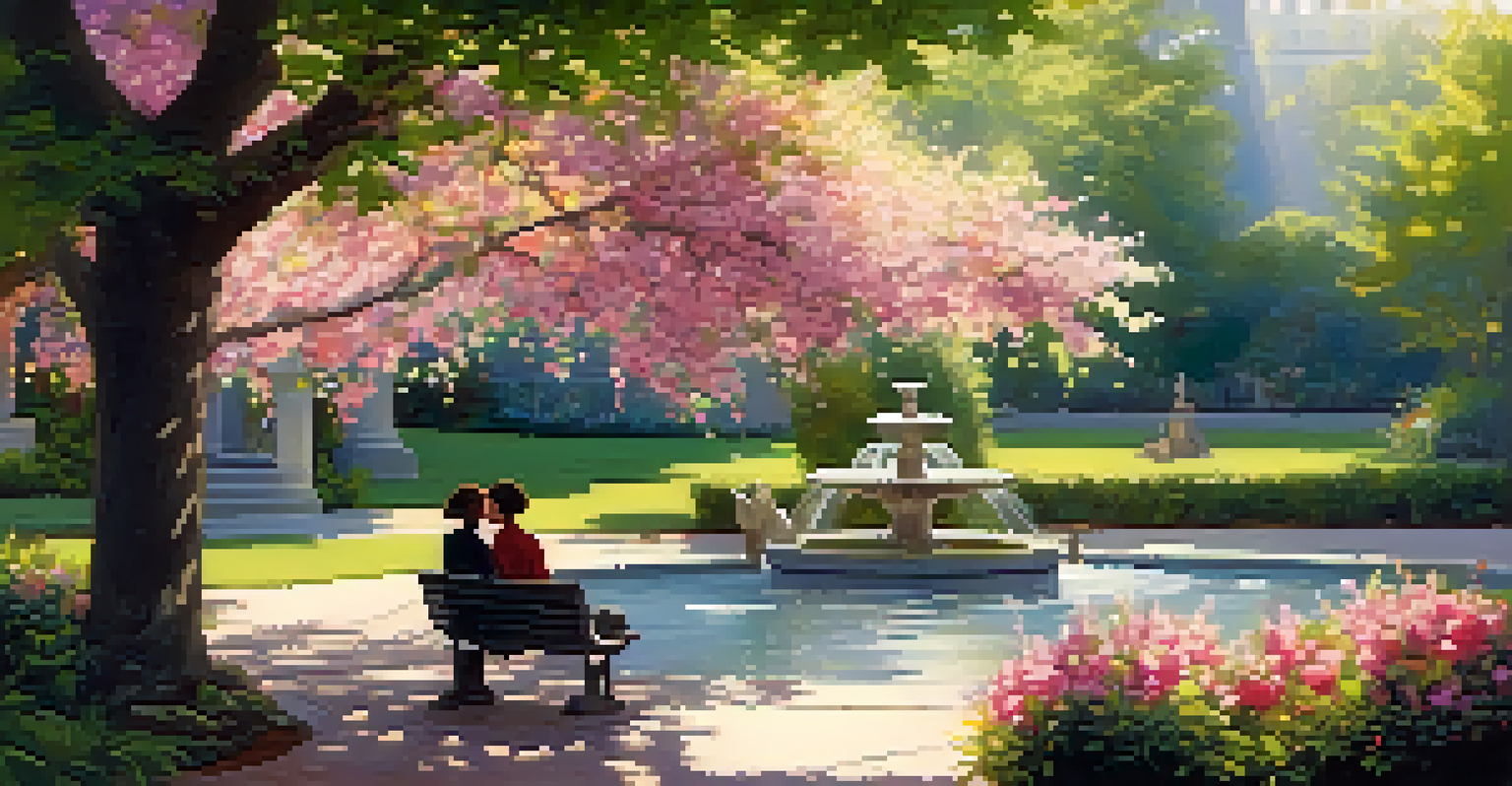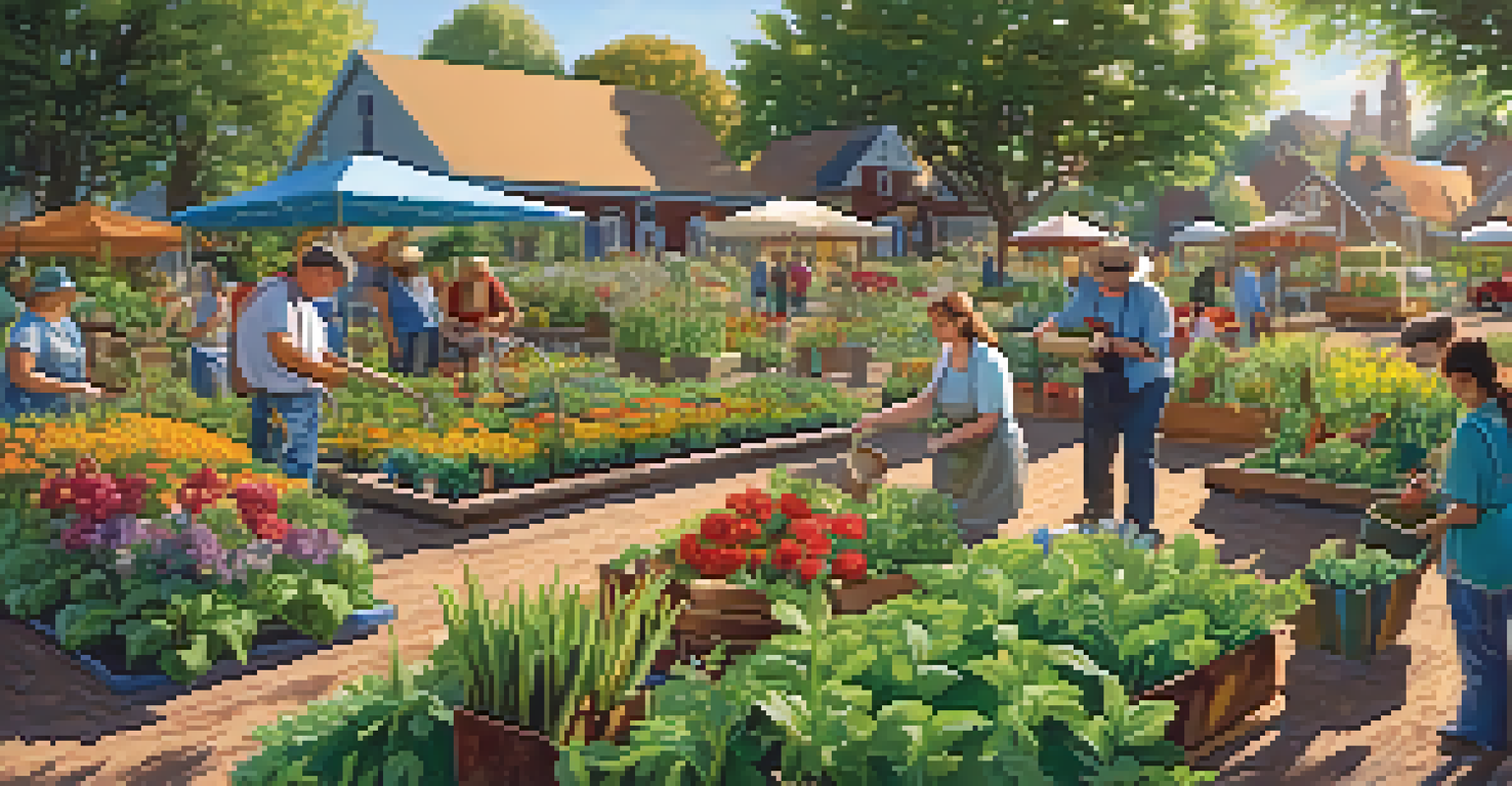Gardens in Literature: A Reflection of Human Emotion

Gardens as Symbols of Growth and Renewal
Gardens often symbolize growth and renewal, reflecting the human experience of change. Just like a garden flourishes with care, people can evolve and transform through their life's challenges. For example, in Frances Hodgson Burnett's 'The Secret Garden,' the characters undergo significant emotional healing as they nurture the once-neglected space. This parallels how individuals can find hope and rejuvenation amidst adversity.
Gardens are a form of autobiography.
In many stories, gardens serve as a backdrop for personal development and self-discovery. They are places where characters confront their past, make decisions, and ultimately grow. The act of tending to plants can mirror the journey of inner healing, as seen in works like 'The Secret Garden.' This connection between nature and personal evolution is a powerful theme in literature.
By portraying gardens as spaces of transformation, authors invite readers to reflect on their own lives. Just as a garden requires patience and dedication, so too does personal growth. The garden becomes a metaphor for the ongoing journey of understanding oneself and the world, resonating deeply with our emotions.
Gardens as Settings for Reflection and Contemplation
In literature, gardens often serve as serene places for reflection and contemplation. Characters retreat to these lush spaces to ponder their thoughts, emotions, and relationships. For instance, in Virginia Woolf's 'To the Lighthouse,' the garden is a sanctuary where characters grapple with their inner struggles and find clarity amidst chaos.

These tranquil settings allow for moments of solitude, fostering a deeper connection with one's emotions. As characters wander through blooming pathways or sit by tranquil ponds, they engage in introspection. This scene-setting enhances the emotional weight of their journeys, making the reader feel the significance of these moments.
Gardens Symbolize Growth and Healing
Literary gardens reflect personal transformation, paralleling how individuals evolve through life's challenges.
Through the portrayal of gardens as reflective spaces, authors highlight the importance of taking time for oneself. Just as a garden requires stillness and observation to truly appreciate its beauty, so does the human mind need moments of quiet to process feelings and experiences. This connection between gardens and introspection is a recurring motif in literature.
The Contrast of Beauty and Decay in Gardens
Gardens in literature often embody the duality of beauty and decay, mirroring the complexities of human emotions. This contrast can evoke feelings of nostalgia, loss, and even hope. In 'The Waste Land' by T.S. Eliot, imagery of desolate gardens reflects a world in chaos, resonating with themes of despair and disillusionment.
The best time to plant a tree was twenty years ago. The second best time is now.
Through this juxtaposition, authors explore the idea that beauty can emerge from decay. A garden that has seen better days can still hold the potential for rebirth and renewal. This notion highlights the resilience of both nature and the human spirit, demonstrating that even in struggle, there is hope for revitalization.
By weaving this contrast into their narratives, writers encourage readers to appreciate the transient nature of life. Just as gardens go through cycles of blooming and wilting, so do our emotions. This connection invites a deeper understanding of the human experience, reminding us that beauty often arises from the ashes of hardship.
Gardens as Symbols of Love and Relationships
In many literary works, gardens symbolize love and the complexities of relationships. They often serve as the backdrop for romantic encounters, intimate conversations, or even conflicts. Think of the iconic garden scenes in Shakespeare's 'Romeo and Juliet,' where the garden becomes a sacred space for love to blossom amidst societal obstacles.
Gardens also reflect the nurturing aspects of relationships. Just as plants need care and attention to thrive, so do human connections. The act of cultivating a garden can parallel the effort required to maintain love and friendship, emphasizing the importance of dedication and patience.
Gardens Foster Reflection and Clarity
In literature, gardens serve as tranquil spaces for characters to engage in introspection and emotional processing.
By using gardens as symbols of love, authors create a rich tapestry of emotion that resonates with readers. These settings remind us that relationships, like gardens, require effort to flourish. The intertwining of nature and love in literature evokes a sense of beauty and complexity that speaks to our own experiences.
The Role of Gardens in Cultural Identity
Gardens in literature often reflect cultural identity, showcasing the values, traditions, and beliefs of different societies. Various cultures have unique gardening practices that tell stories of their heritage and relationship with nature. For instance, in Japanese literature, gardens are meticulously designed to evoke harmony and balance, mirroring the cultural emphasis on tranquility and nature.
These gardens serve as a canvas for exploring cultural narratives, allowing authors to delve into themes of belonging and identity. They reflect how characters relate to their environments and how culture shapes their emotions and experiences. Through vivid descriptions, readers gain insight into the cultural significance of gardens.
By incorporating gardens into their stories, writers create a dialogue between nature and culture. This connection invites readers to reflect on their own identities and the landscapes that shape them. The portrayal of gardens as symbols of cultural identity enriches literary narratives, grounding them in the beauty of diversity.
Gardens as Spaces for Conflict and Resolution
Gardens can also serve as arenas for conflict and resolution in literature, providing a physical space where tensions unfold. These lush environments often become the backdrop for confrontations, revelations, and reconciliations. In 'The Secret Garden,' the titular space transforms from a neglected area to a place of healing, illustrating how conflict can give way to resolution.
The juxtaposition of beauty and turmoil in gardens adds emotional depth to the narrative. Characters may grapple with their feelings of anger, jealousy, or sadness in these spaces, allowing for authentic emotional expression. The garden acts as a catalyst for change, pushing characters towards growth and understanding.
Gardens Represent Love and Conflict
Gardens often act as backdrops for romantic encounters and conflicts, emphasizing the effort required to nurture relationships.
By framing gardens as spaces for conflict, authors highlight the complexities of human relationships. These settings remind us that every relationship has its challenges, but like a garden, resolution is possible through care and attention. This theme resonates deeply, encouraging readers to reflect on their own conflicts and the potential for healing.
The Timeless Appeal of Gardens in Literature
Gardens have a timeless appeal in literature, serving as enduring symbols of human emotion across cultures and eras. Their beauty and complexity resonate with readers, inviting them to explore the intricate relationship between nature and humanity. From classic works to contemporary stories, gardens continue to captivate and inspire.
The universal themes associated with gardens—growth, love, conflict, and reflection—are relatable to readers of all backgrounds. This accessibility allows authors to convey deep emotional truths through the lens of nature. As readers journey through these literary gardens, they find a mirror for their own experiences and emotions.

Ultimately, gardens in literature remind us of the profound connection between nature and the human spirit. They encourage us to embrace our emotions, reflect on our journeys, and appreciate the beauty that can arise from both growth and decay. The enduring symbolism of gardens ensures their place in the hearts of readers for generations to come.